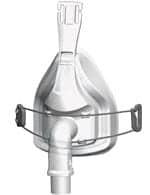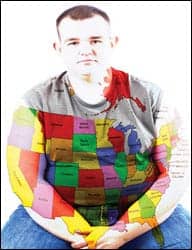A study by researchers at the University of Houston (UH) College of Optometry found that blue light emitted from a smart phone, tablet, and TVs could contribute to the high prevalence of reported sleep dysfunction. The study is published in Ophthalmic & Physiological Optics.
Study participants, ages 17-42, wore short wavelength-blocking glasses 3 hours before bedtime for 2 weeks, while still performing their nightly digital routine. Results showed about a 58% increase in their nighttime melatonin levels, the chemical that signals your body that it’s time to sleep. Those levels are even higher than increases from over-the-counter melatonin supplements, according to Lisa Ostrin, OD, PhD, the UH College of Optometry assistant professor who lead the study.
“The most important takeaway is that blue light at night time really does decrease sleep quality. Sleep is very important for the regeneration of many functions in our body,” Ostrin says in a release.
Wearing activity and sleep monitors 24 hours a day, the 22 study participants also reported sleeping better, falling asleep faster, and even increased their sleep duration by 24 minutes a night, according to Ostrin.
The largest source of blue light is sunlight, but it’s also found in most LED-based devices. Blue light boosts alertness and regulates our internal body clock that tells our bodies when to sleep. This artificial light activates photoreceptors called intrinsically photosensitive retinal ganglion cells (ipRGCs), which suppresses melatonin.
Ostrin recommends limiting screen time, applying screen filters, wearing computer glasses that block blue light, or use anti-reflective lenses to offset the effects of artificial light at nighttime. Some devices even include night mode settings that limit blue light exposure.
“By using blue blocking glasses we are decreasing input to the photoreceptors, so we can improve sleep and still continue to use our devices. That’s nice, because we can still be productive at night,” Ostrin says.
According to the most recent findings from the National Sleep Foundation’s Sleep Health Index, while three quarters of Americans are satisfied with their sleep over the past week, more than 4 in 10 Americans reported that their daily activities were significantly impacted by poor or insufficient sleep at least once during the past 7 days.





